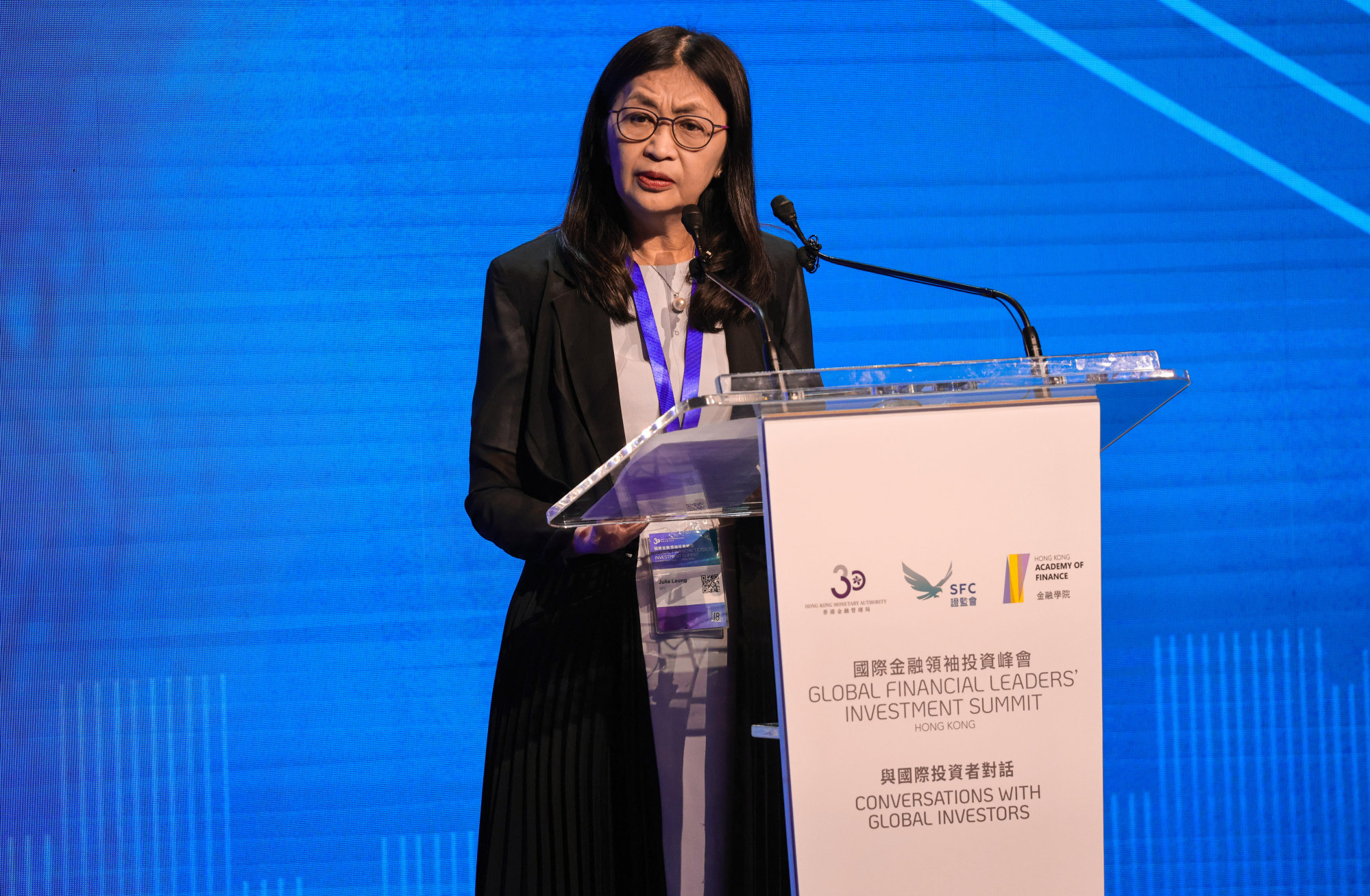[ad_1]
Elevated interest rates and geopolitical tensions will persist globally in the foreseeable future, according to the world’s top money managers, but a Hong Kong securities regulator believes the investment community can turn these challenges into opportunities.
Julia Leung Fung-yee, CEO of the Securities and Futures Commission (SFC), Hong Kong’s securities regulator, said on Wednesday at a gathering that included officials from some of the world’s leading funds including BlackRock, Invesco and Fidelity, that new asset allocation strategies were the need of the hour.
“Together we will apply the Chinese wisdom of turning our crises into opportunities through new asset allocation strategies, for public or private market, active or passive, Asia-Pacific or elsewhere,” Leung said while speaking on the second day of the Global Financial Leaders’ Investment Summit, co-hosted by SFC and Hong Kong Monetary Authority.
“We will also map out a course for the future of finance and learn the art of risk-taking in this not-too-simple world.”

Investment managers at the summit spoke about the challenges facing the global financial markets as the yield on US 10-year Treasuries, a global benchmark, hovered near 16-year highs, increasing borrowing costs across the world amid geopolitical conflicts.
“Among the greatest challenges we are seeing are the tensions, the wars around the world,” Andrew Schlossberg, president and CEO at Invesco, said during a panel discussion titled “Asset allocation and the challenging environment”.
Hong Kong crypto exchanges pursuing licences put under a spotlight by SFC
Hong Kong crypto exchanges pursuing licences put under a spotlight by SFC
Portfolio managers are positioned defensively amid the interest rate and geopolitical uncertainties, and investors are likely to stay on the sidelines until they see a clear catalyst to take on more risk in their portfolios, he said.
“Cyclically, this is a difficult time in China investment,” said Mark Wiedman, head of the global client business at BlackRock, the world’s largest money manager, during the same panel discussion.
China is currently undergoing a “massive shift” to diversify individuals’ retirement savings, which are currently heavily concentrated in real estate and bank deposits. In the future it will be more capital markets driven, and “those are big opportunities for us”, he said.
The Hang Seng Index has slumped nearly 11 per cent so far this year amid China’s tepid recovery against the backdrop of rising geopolitical tensions, as the Hong Kong stock market ranks among the worst performers globally.
Meanwhile, the ongoing Israeli-Hamas conflict, Russia’s invasion of Ukraine and the decoupling between the world’s two largest economies are souring risk appetite, driving investors to haven assets.
[ad_2]
Source link
